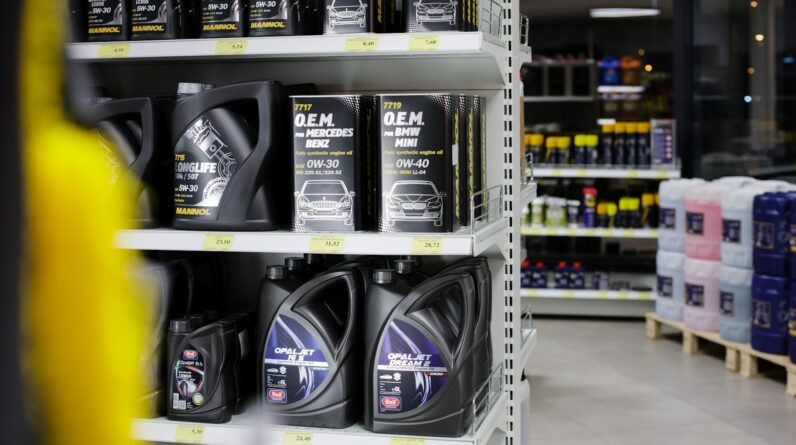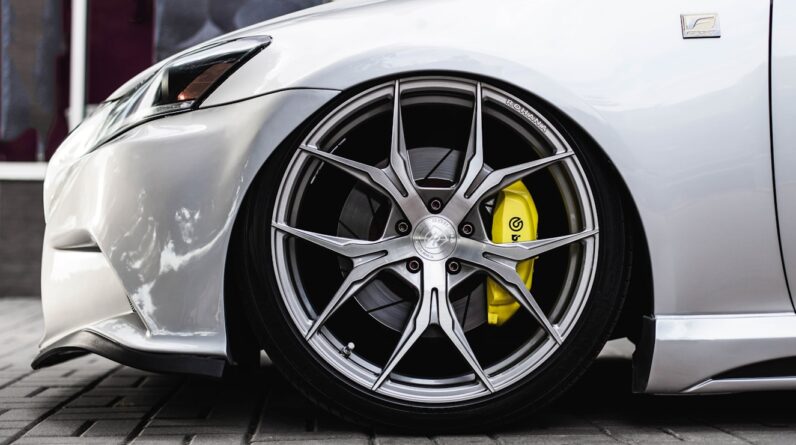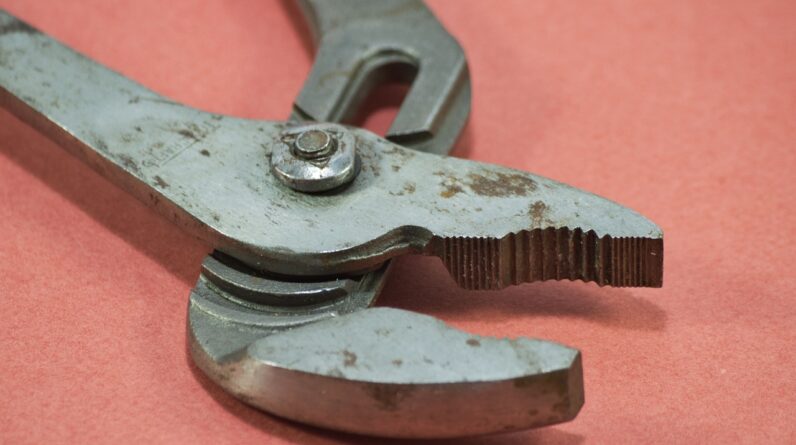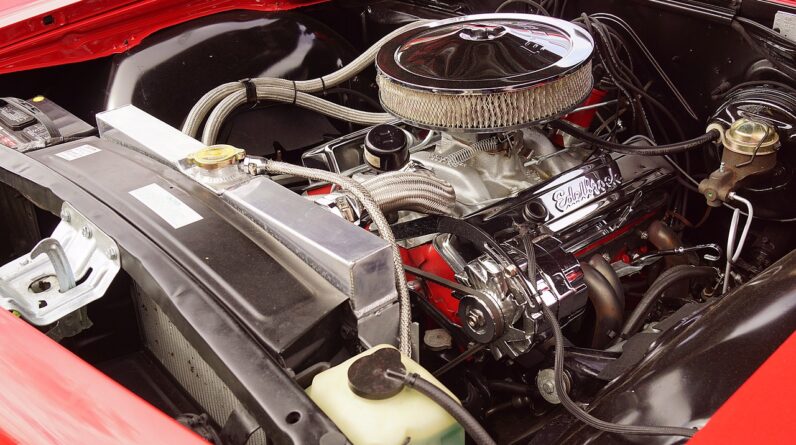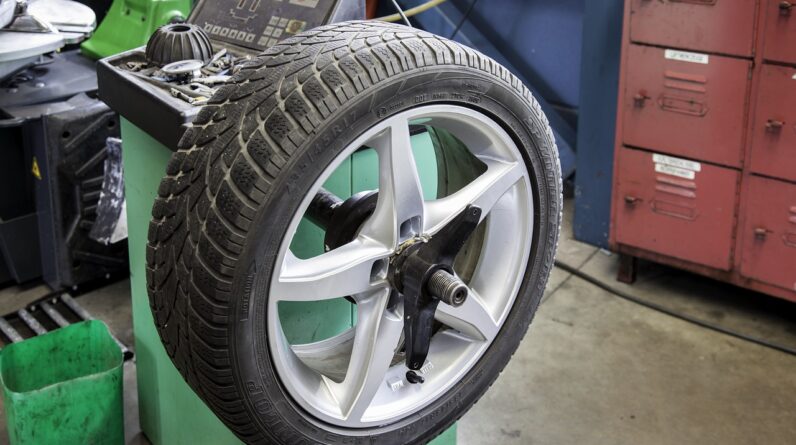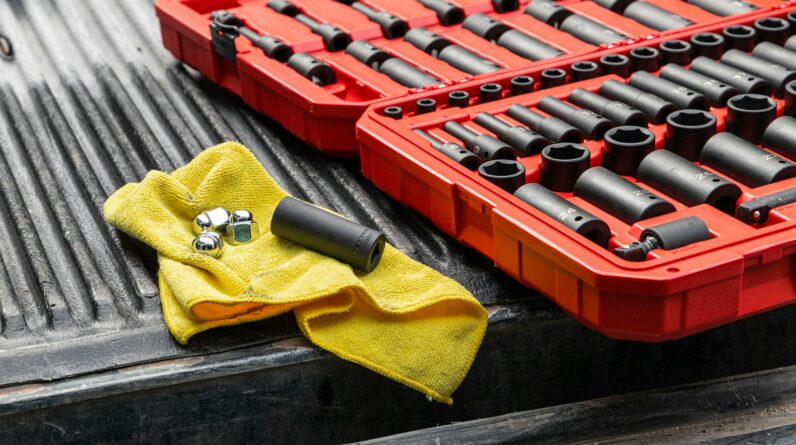
Discover essential and affordable car tools for DIY repairs! With the right gear, you can tackle maintenance confidently and save money. Start your journey today!
Have you ever found yourself looking under the hood of your car, feeling a mix of confusion and excitement? We’ve all been there! Car repair can seem daunting, but with the right tools, we can tackle most tasks ourselves. Let’s take a closer look at some affordable car tools that can transform our DIY car repair experience.
Understanding the Importance of Having the Right Tools
Having the right tools is essential for any DIY project, especially when it comes to car repairs. The right tools not only make our work easier but also help ensure that we complete our projects safely and effectively. Investing in affordable tools can save us money in the long run and give us a sense of independence when it comes to maintaining our vehicles.
Benefits of DIY Car Repair
Before we jump into the list of tools, let’s take a moment to appreciate the benefits of DIY car repair. Not only does it save us money on labor costs, but it also gives us the satisfaction of knowing we can handle our vehicle’s needs. Here are a few more advantages:
- Cost Savings: Repairing our cars ourselves means we pay only for parts, avoiding the hefty labor fees charged by mechanics.
- Skill Development: We gain valuable skills and knowledge about our vehicles, which can help us make informed decisions in the future.
- Convenience: We can choose our own schedule to work on our vehicles, rather than having to fit into a mechanic’s availability.
Given these benefits, it’s clear that having the right tools is crucial for the DIY car repair enthusiast. Let’s explore what tools we can include in our toolkit!
Essential Hand Tools
Hand tools are fundamental for any car repair project. They’re often the first tool we reach for when something needs fixing, and there’s a wide range available that won’t break the bank.
Wrenches
Wrenches come in various sizes and styles, but let’s focus on the most essential types for our DIY repair toolkit.
| Type of Wrench | Description |
|---|---|
| Adjustable Wrench | Versatile and can fit multiple sizes of nuts and bolts. |
| Socket Set | Comes with various socket sizes that fit onto a ratchet. |
| Torque Wrench | Allows for tightening bolts to a specific torque setting. |
Adjustable wrenches are great for general use, while a socket set can tackle a variety of tasks, especially in tight spaces. A torque wrench is essential for jobs that require a precise amount of tightness, like when we’re working on our vehicle’s engine.
Screwdrivers
A solid screwdriver set is a must-have in our car repair toolkit. We should look for both flathead and Phillips screwdrivers in various sizes.
| Type of Screwdriver | Description |
|---|---|
| Flathead | Good for slotted screws and general purposes. |
| Phillips | Designed for cross-headed screws, commonly found in cars. |
Having a complete screwdriver set on hand will allow us to tackle any screws we encounter without getting frustrated by mismatched sizes.
Pliers
Pliers are essential for gripping, twisting, and cutting tasks during our car repairs. Here are some common types we might consider:
| Type of Pliers | Description |
|---|---|
| Needle-Nose Pliers | Perfect for reaching into tight spots. |
| Slip-Joint Pliers | Adjustable jaws allow for various gripping sizes. |
| Wire Cutters | Useful for cutting and stripping wires during repairs. |
With these types of pliers in our toolkit, we can handle almost any task with confidence.

Specialized Tools for Common Repairs
In addition to basic hand tools, we should consider investing in specialized tools to help us with common car repairs.
Oil Filter Wrench
When we’re doing an oil change, getting to the oil filter can be a hassle. An oil filter wrench helps us easily remove the filter without straining ourselves. These come in different styles, including strap and socket designs, so we can choose one that fits our preference.
Brake Tool Set
If we’re planning to tackle brake jobs ourselves, a brake tool set is invaluable. These sets typically include brake pad spreaders and other essential tools to help us manage brake components safely and efficiently.
Tire Changing Tools
Changing a tire is one of the most common tasks we might face as car owners. Here’s what we should have on hand:
| Tool | Description |
|---|---|
| Jack | Lifts the car for tire change. |
| Lug Wrench | Removes lug nuts to take the tire off. |
| Tire Pressure Gauge | Measures air pressure for tire maintenance. |
These tools are vital for anyone looking to perform tire changes and ensure that our tires are properly inflated.
Power Tools for DIY Mechanics
While hand tools are often sufficient for many car repairs, some tasks might require the additional power of electric tools. Let’s discuss a few useful and affordable power tools we can add to our collection.
Electric Impact Wrench
An electric impact wrench can save us significant time and effort when removing stubborn bolts and nuts, particularly during tire changes or suspension work. They come in both corded and cordless models, so we can choose one that fits our garage setup.
Cordless Drill
We shouldn’t underestimate the usefulness of a cordless drill. It’s perfect for making quick work of drilling holes, driving screws, and can even double as a wrench in certain applications if we equip it with the right bits.
Shop Vacuum
A shop vacuum isn’t just for cleaning up after a project; it can also be used to manage dust and debris while working on our cars. Keeping our workspace clean will help us avoid losing small parts and maintain focus.

Safety Equipment and Accessories
Safety should always be our top priority when doing any DIY project, especially car repairs. Investing in safety equipment is a wise decision that will protect us during our work.
Safety Glasses
Protecting our eyes is paramount when working around a car. Safety glasses are typically inexpensive and can prevent foreign objects from causing injury. They’re a small investment for significant peace of mind.
Work Gloves
Having a good pair of work gloves can protect our hands from cuts, scrapes, and chemicals. Look for gloves that provide a good grip while still allowing us to maintain dexterity.
First Aid Kit
Accidents happen, even with the best precautions. Having a first aid kit readily available ensures we’re prepared for minor injuries.
Organized Storage Solutions
Now that we’ve collected our tools, let’s discuss how we can keep them organized. An organized workspace can make all the difference in our efficiency and enjoyment of DIY car repairs.
Tool Chest or Toolbox
Investing in a sturdy tool chest or toolbox will help keep our tools safe and neatly organized. We can choose one based on the amount of space we have and the number of tools we plan to store.
Magnetic Tool Holders
Using magnetic tool holders can help us keep frequently used tools easily accessible. We can mount these on the wall or our workbench for quick grabs during projects.
Pegboards
Installing a pegboard system in our garage or workshop is a fantastic way to maximize vertical space. We can hang tools, keeping them visible and organized.

Finding Affordable Tools
As we build our toolkit, it’s essential to find affordable options. Here are a few places we can look for budget-friendly tools.
Local Hardware Stores
Local hardware stores often have sales or clearance events, allowing us to get good deals on basic tools. Building a relationship with store employees can also lead to insider tips on upcoming sales.
Online Retailers
We can browse online retailers for a broader selection of tools, often at discounted prices. While we order online, it’s worthwhile to read reviews and check ratings to ensure product quality.
Secondhand Shops and Auctions
Don’t overlook secondhand shops or estate sales. We can sometimes find high-quality tools at a fraction of the original price. Online platforms like eBay or local auction sites can also be goldmines for affordable tools.
Maintenance of Tools
After investing our time and money into building our toolkit, it’s critical to maintain our tools properly. This will extend their lifespan and ensure they’re always ready for us when we need them.
Cleaning and Oiling
Regularly cleaning our tools after use helps remove dirt and grime that can cause rust and wear. For metal tools, applying a light layer of oil can create a protective barrier against moisture.
Proper Storage
We should always return our tools to their designated storage space after use. Keeping them organized prevents damage and loss, which can be frustrating during our next repair project.
Inspections
Taking a moment to inspect our tools before use is wise. We should check for any damage or wear that might affect their performance. Replacing tools as necessary will help maintain safety and efficiency.
Conclusion
DIY car repair doesn’t have to feel overwhelming. With the right tools and a bit of preparation, we can tackle many tasks ourselves and enjoy the process. From basic hand tools like wrenches and screwdrivers to specialized equipment like oil filter wrenches and impact wrenches, there’s a world of affordable tools to suit our needs.
So, the next time we find ourselves looking under our car’s hood or considering a tire change, we can feel confident knowing we have the tools and skills to handle it. Happy tinkering!


